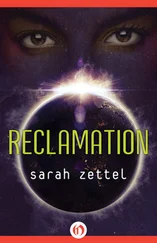There weren’t any starbirds or gerbils in The Gate crew, she’d found out. All the personnel were rotated out every six months. The Farther Kingdom didn’t want to risk their crew becoming more loyal to the station and to each other than to the world below.
Groundhuggers, she thought with automatic disdain. After a moment, she realized she had been scanning the benches, and the corridor. She dropped her gaze to the table. She’d been looking for Schyler, who’d said he might come out this far and have lunch with her.
Don’t start, Jemina-Jewel, she told herself. If you let yourself start getting lonely, there’s no telling what you’ll end up doing. It’s only two years. You can do this.
Despite her resolutions, she swallowed a spoonful of stew and immediately missed the Sundars. She wondered if they had had time to do their shopping before leave got cancelled. She wondered what had happened to make the Ninja Woman cancel leave in the first place. Schyler wasn’t telling her anything, just be back aboard within three hours and ready to work. She’d have a full report as soon as he had confirmation of…whatever.
She took out her pen and jacked it into the socket for the view screen and swallowed another spoonful of stew. Because she was registered as a crewmember of a ship renting its berth at the station, the terminal responded.
“Business or entertainment?” inquired the sociable, contralto voice that had guided her through the docking procedures.
Yerusha lowered her spoon slowly. “You’re the station AI.”
“My name is Maidai, ‘Dama. How can I help you?”
Yerusha felt a small smile cross her features. She’d heard about The Gate AI before she’d even headed out this way. Not only was The Gate’s traffic control all guided by this voice, so was most of its maintenance and supply distribution. Maidai kept the station running cheaply, efficiently, and, impartially.
Suddenly the stew didn’t seem quite so disappointing. Maidai might not have caught a soul yet, but it was still a familiar kind of person. “You can talk to me for a little bit, if it won’t interfere with your work.”
Someone had managed to program in a laugh. “Not unless you want to talk about a major statistical analysis or a structural configuration simulation.”
Yerusha chuckled. Very good. “No, just a little casual conversation.”
“As far as I am able,” replied Maidai. “You will have to begin so that I can route through the proper responses.”
All right, not that good, but it’s better than having to pay attention to the stew . She took a helping of “wild rice” and tried to think of a good opening. “How long have you worked for The Gate?”
“I helped build the station.” There was no ring of pride in the voice, and there should have been. Yerusha found herself wishing she could find Maidai’s programmer and have a long talk with them. “I was sent up in the first modules from The Farther Kingdom and helped direct the station assembly.”
Yerusha took a drink of coffee that, compared to the Sundar’s, might as well have been hot water. “Designated neutral supervisor, that kind of thing?”
There was a pause. “Yes. That kind of thing.”
“Ah.” There was another pause, and it kept on going while Maidai waited for Yerusha to think of something to say.
Mildly comfortable rebellion stirred inside her. “Maidai, ask me a question.”
“What sort of question?”
Yerusha shrugged reflexively. “Any sort of question. You do have interrogative features, don’t you?”
“Lots of them.” The AI paused, sorting out the necessary word string. “But those are only on call during specific situational parameters. I have no routine for the current parameters.”
Yerusha set her bulb down. Same old problem. All AIs could learn. That was one of the qualities that made them artificial intelligence instead of just computers. Most of them, though, only learned when they had been instructed to learn, usually during a set list of tasks. They all remembered and recorded, but without a pre-defined set of circumstances, those recordings were not accessed.
Attempts had been made to create AIs that could learn all the time, but in those cases a “thought” that was relative to outside circumstances became a matter of chance, or chaos theory, and as soon as the architects started trying to match thought to circumstance, the old “when to learn” problem bent itself back into shape. She’d been to discussion groups where people talked about this being the true barrier to independent thought. If an AI environment could not experience the outside world spontaneously, how could it ever house a human soul?
With a twinge, she remembered the nights she’d sat up with Foster trying to solve that problem. She’d thought, maybe arrogantly, a couple of times that she’d almost had it. It was a moot point now. Exiles, even former exiles, were not eligible for the adoption lottery. She’d had her chance and it had been blown right out from under her.
She drank the last of the watery coffee and tried to drink down her bitterness with it.
“How’d you get to be named Maidai?” Yerusha asked, poking her fork into her “rice” again.
“I was told it was someone’s joke,” Maidai responded amiably. “M’aidez means ‘help me’ in French and used to be an intern…” Maidai’s voice faded away.
Yerusha’s hand froze with her fork halfway to her mouth. “Maidai?”
The voice that responded was canned. Obviously some kind of back up recording. “No response available.” Then, in the next minute, Maidai’s voice came back, “…ational distress signal because…”
Very carefully, Yerusha set the fork down into the food box. “Maidai, you’ve had a process interruption, what caused it?”
Another pause. This time, Yerusha found herself holding her breath.
“Process interruption not recorded,” said Maidai. There was no expression in her voice. “There is unaccounted processing time…” Another pause. “You do not have the authorization to interrogate me about central processes.”
Fractured, twisted, buckled… “Who does have the authorization?”
A list of names and contact codes wrote themselves across the memory board. She picked out the first one; a Process Architect ‘Ster Gabriel Trustee, and underlined the contact code with her pen.
Nothing happened.
Yerusha felt the blood drain out of her cheeks. She tried again, and again, nothing happened.
“Maidai,” she said softly. “Are you still there?”
“No response available.”
A split second later, the long, high-pitch wail of an emergency alarm cut through the galley. The buzz of conversation silenced at once and all heads jerked up, waiting for the announcement to follow.
Nothing happened.
No response available. It was the reflex to never leave anything loose lying around that shut her food box and pitched it into the trash bin as she stood up.
“All hands, duty stations!” barked out somebody.
Really good idea. Yerusha forced herself to hang back until the crew had cleared the galley. She had to hand it to them, they moved with purpose and without panic. Then again, none of them knew what could be going on yet. A sick, suspicious part of her was wondering if this cut-price station had a back-up communication system, or if the designers had said, “Why would we need it? The station is under the supervision of an advance-trained, neural-net AI. This is a self-diagnosing system that could not crash all at once, not without raising the alarm to the process architectures.”
Except that it just happened.
Out in the corridor, Yerusha took a second to be sure of her balance, and broke into a run.
Читать дальше












